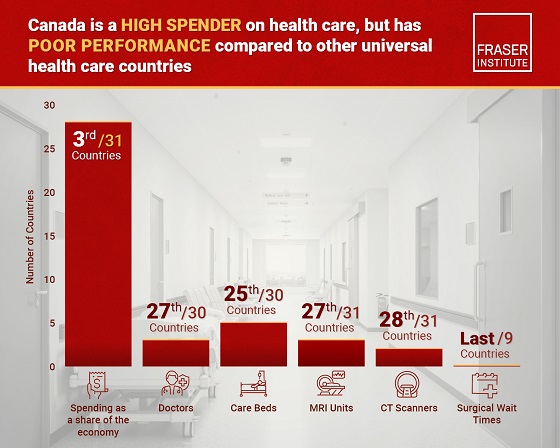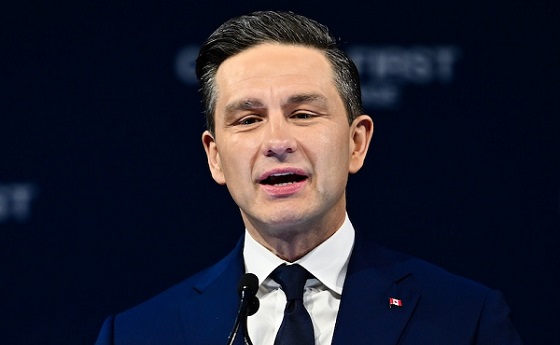Uncategorized
Trump says ‘no reason’ for him to hear Khashoggi death tape

WASHINGTON — President Donald Trump said there is no reason for him to listen to a recording of the “very violent, very vicious” killing of Saudi journalist Jamal Khashoggi, which has put him in a diplomatic bind: how to admonish Riyadh for the slaying yet maintain strong ties with a close ally.
Trump, in an interview that aired Sunday, made clear that the audio recording, supplied by the Turkish government, would not affect his response to the Oct. 2 killing of Khashoggi, a columnist for The Washington Post who had been critical of the Saudi royal family.
“It’s a suffering tape, it’s a terrible tape. I’ve been fully briefed on it, there’s no reason for me to hear it,” Trump said in the interview with “Fox News Sunday.” ”I know everything that went on in the tape without having to hear it.”
On Saturday, Trump said his administration will “be having a very full report over the next two days, probably Monday or Tuesday.” He said the report will include “who did it.” It was unclear if the report would be made public.
American intelligence agencies have concluded that the crown prince ordered the killing in the Saudi Consulate in Turkey, according to a U.S. official familiar with the assessment. The official was not authorized to discuss the matter publicly and spoke on the condition of anonymity. Others familiar with the case caution that while it’s likely the crown prince was involved in the death, there continue to be questions about what role he played.
Trump noted to “Fox News Sunday” that the crown prince has repeatedly denied being involved in the killing inside the Saudi Consulate in Istanbul.
“Will anybody really know?” Trump asked. “At the same time, we do have an ally, and I want to stick with an ally that in many ways has been very good.”
A Republican member of the Senate intelligence committee said that so far, there is no “smoking gun” linking the crown prince to the killing. Sen. Roy Blunt of Missouri, who has received a confidential intelligence briefing on the matter, told ABC that “it’s hard to imagine” that the crown prince didn’t know about the killing, but he said, “I don’t know that we absolutely know that yet.”
He said that Congress will await the Trump administration’s report in the next two days and that the U.S. will need to be clear about the ramifications of sanctions, given Saudi Arabia’s strategic role in the Middle East.
For his part, Sen. Lindsey Graham, a Trump ally, said the crown prince has been a “wrecking ball” in the relationship between the U.S. and Saudi Arabia.
“I hate to say that because I had a lot of hope for him being the reformer that Saudi Arabia needs, but that ship has sailed as far as Lindsey Graham’s concerned,” the South Carolina Republican told NBC’s “Meet the Press.”
“I have no intention of working with him ever again,” said Graham, who is in line to be the next chairman of the Senate Judiciary Committee.
Intelligence officials have been providing information to Trump for weeks about the death, and he was briefed again by phone Saturday by CIA Director Gina Haspel and Secretary of State Mike Pompeo as he flew to California. White House press secretary Sarah Huckabee Sanders provided no details of his call but said the president has confidence in the CIA.
“The United States government is determined to hold all those responsible for the killing of Jamal Khashoggi accountable,” the State Department said in a statement. “Recent reports indicating that the U.S. government has made a final conclusion are inaccurate. There remain numerous unanswered questions with respect to the murder of Mr. Khashoggi.”
The statement added: “The U.S. government has taken decisive measures against the individuals responsible, including visa and sanctions actions. We will continue to explore additional measures to hold those accountable who planned, led and were connected to the murder. And, we will do that while maintaining the important strategic relationship between the United States and Saudi Arabia.”
Before his call on Air Force One, Trump told reporters that when it came to the crown prince, “as of this moment we were told that he did not play a role. We’re going to have to find out what they have to say.” That echoed remarks by national security adviser John Bolton, who said earlier this week that people who have listened to an audio recording of the killing do not think it implicates the crown prince.
Germany’s foreign minister on Monday said Berlin had banned 18 Saudi nationals from entering Europe’s border-free Schengen zone because they are believed to be connected to Khashoggi’s killing. Heiko Maas told reporters in Brussels on Monday that Germany issued the ban for the 26-nation zone in close
Trump has called the killing a botched operation that was carried out very poorly and has said “the
But he has resisted calls to cut off arms sales to the kingdom and has been reluctant to antagonize the Saudi rulers. Trump considers the Saudis vital allies in his Mideast agenda.
But members of Congress are pushing Trump for a tougher response to the killing. The administration this past week penalized 17 Saudi officials for their alleged role in the killing, but American lawmakers have called on the administration to curtail arms sales to Saudi Arabia or take other harsher punitive measures.
Turkish and Saudi authorities say Khashoggi, a Saudi who lived in the United States, was killed inside the consulate by a team from the kingdom after he went there to get marriage documents.
Deb Riechmann And Jonathan Lemire, The Associated Press
Uncategorized
New report warns WHO health rules erode Canada’s democracy and Charter rights

The Justice Centre for Constitutional Freedoms has released a new report titled Canada’s Surrender of Sovereignty: New WHO health regulations undermine Canadian democracy and Charter freedoms. Authored by Nigel Hannaford, a veteran journalist and researcher, the report warns that Canada’s acceptance of the World Health Organization’s (WHO) revised International Health Regulations (IHR) represents a serious erosion of national independence and democratic accountability.
The IHR amendments, which took effect on September 19, 2025, authorize the WHO Director-General to declare global “health emergencies” that could require Canada to follow directives from bureaucrats in Geneva, bypassing the House of Commons and the will of Canadian voters.
The WHO regards these regulations as “binding,” despite having no ability or legal authority to impose such regulations. Even so, Canada is opting to accept the regulations as binding.
By accepting the WHO’s revised IHR, the report explains, Canada has relinquished its own control over future health crises and instead has agreed to let the WHO determine when a “pandemic emergency” exists and what Canada must do to respond to it, after which Canada must report back to the WHO.
In fact, under these International Health Regulations, the WHO could demand countries like Canada impose stringent freedom-violating health policies, such as lockdowns, vaccine mandates, or travel restrictions without debate, evidence review, or public accountability, the report explains.
Once the WHO declares a “Pandemic Emergency,” member states are obligated to implement such emergency measures “without delay” for a minimum of three months.
Importantly, following these WHO directives would undermine government accountability as politicians may hide behind international “commitments” to justify their actions as “simply following international rules,” the report warns.
Canada should instead withdraw from the revised IHR, following the example of countries like Germany, Austria, Italy, Czech Republic, and the United States. The report recommends continued international cooperation without surrendering control over domestic health policies.
Constitutional lawyer Allison Pejovic said, “[b]y treating WHO edicts as binding, the federal government has effectively placed Canadian sovereignty on loan to an unelected international body.”
“Such directives, if enforced, would likely violate Canadians’ Charter rights and freedoms,” she added.
Mr. Hannaford agreed, saying, “Canada’s health policies must be made in Canada. No free and democratic nation should outsource its emergency powers to unelected bureaucrats in Geneva.”
The Justice Centre urges Canadians to contact their Members of Parliament and demand they support withdrawing from the revised IHR to restore Canadian sovereignty and reject blind compliance with WHO directives.
Uncategorized
CNN’s Shock Climate Polling Data Reinforces Trump’s Energy Agenda


From the Daily Caller News Foundation
As the Trump administration and Republican-controlled Congress move aggressively to roll back the climate alarm-driven energy policies of the Biden presidency, proponents of climate change theory have ramped up their scare tactics in hopes of shifting public opinion in their favor.
But CNN’s energetic polling analyst, the irrepressible Harry Enten, says those tactics aren’t working. Indeed, Enten points out the climate alarm messaging which has permeated every nook and cranny of American society for at least 25 years now has failed to move the public opinion needle even a smidgen since 2000.
Appearing on the cable channel’s “CNN News Central” program with host John Berman Thursday, Enten cited polling data showing that just 40% of U.S. citizens are “afraid” of climate change. That is the same percentage who gave a similar answer in 2000.
Dear Readers:
As a nonprofit, we are dependent on the generosity of our readers.
Please consider making a small donation of any amount here.
Thank you!
Enten’s own report is an example of this fealty. Saying the findings “kind of boggles the mind,” Enten emphasized the fact that, despite all the media hysteria that takes place in the wake of any weather disaster or wildfire, an even lower percentage of Americans are concerned such events might impact them personally.
“In 2006, it was 38%,” Enten says of the percentage who are even “sometimes worried” about being hit by a natural disaster, and adds, “Look at where we are now in 2025. It’s 32%, 38% to 32%. The number’s actually gone down.”
In terms of all adults who worry that a major disaster might hit their own hometown, Enten notes that just 17% admit to such a concern. Even among Democrats, whose party has been the major proponent of climate alarm theory in the U.S., the percentage is a paltry 27%.
While Enten and Berman both appear to be shocked by these findings, they really aren’t surprising. Enten himself notes that climate concerns have never been a driving issue in electoral politics in his conclusion, when Berman points out, “People might think it’s an issue, but clearly not a driving issue when people go to the polls.”
“That’s exactly right,” Enten says, adding, “They may worry about in the abstract, but when it comes to their own lives, they don’t worry.”
This reality of public opinion is a major reason why President Donald Trump and his key cabinet officials have felt free to mount their aggressive push to end any remaining notion that a government-subsidized ‘energy transition’ from oil, gas, and coal to renewables and electric vehicles is happening in the U.S. It is also a big reason why congressional Republicans included language in the One Big Beautiful Bill Act to phase out subsidies for those alternative energy technologies.
It is key to understand that the administration’s reprioritization of energy and climate policies goes well beyond just rolling back the Biden policies. EPA Administrator Lee Zeldin is working on plans to revoke the 2010 endangerment finding related to greenhouse gases which served as the foundation for most of the Obama climate agenda as well.
If that plan can survive the inevitable court challenges, then Trump’s ambitions will only accelerate. Last year’s elimination of the Chevron Deference by the Supreme Court increases the chances of that happening. Ultimately, by the end of 2028, it will be almost as if the Obama and Biden presidencies never happened.
The reality here is that, with such a low percentage of voters expressing concerns about any of this, Trump and congressional Republicans will pay little or no political price for moving in this direction. Thus, unless the polls change radically, the policy direction will remain the same.
David Blackmon is an energy writer and consultant based in Texas. He spent 40 years in the oil and gas business, where he specialized in public policy and communications.
-

 Business1 day ago
Business1 day agoQuebecers want feds to focus on illegal gun smuggling not gun confiscation
-

 Business1 day ago
Business1 day agoEmission regulations harm Canadians in exchange for no environmental benefit
-

 Courageous Discourse1 day ago
Courageous Discourse1 day agoNo Exit Wound – EITHER there was a very public “miracle” OR Charlie Kirk’s murder is not as it appears
-

 Carbon Tax7 hours ago
Carbon Tax7 hours agoBack Door Carbon Tax: Goal Of Climate Lawfare Movement To Drive Up Price Of Energy
-

 Business1 day ago
Business1 day agoCanada has fewer doctors, hospital beds, MRI machines—and longer wait times—than most other countries with universal health care
-

 Digital ID19 hours ago
Digital ID19 hours agoToronto airport requests approval of ‘digital IDs’ for domestic airport travel
-

 Brownstone Institute18 hours ago
Brownstone Institute18 hours agoThe Doctor Will Kill You Now
-

 Alberta1 day ago
Alberta1 day agoPetition threatens independent school funding in Alberta






